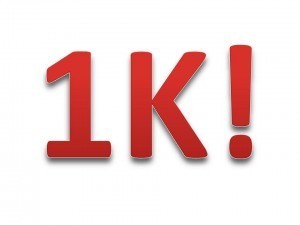Jennifer Becton's Blog, page 62
January 12, 2011
You Can't Do That

You can do it, if you want to.
If there's a recurring theme in blogs I've read recently, it's that writers are only good for one thing: writing.
I've read lots of posts about how writers cannot edit their text, format their interiors, design their covers, do their own accounting, or market their books successfully. They cannot do it. Now, if bloggers said that most writers do not want to do these things, then I would agree.
But I'm tired of being told I cannot do it. I can, and so can you…if you want to.
You can edit or hire an editor. I will agree that it is difficult, if not impossible, to proofread one's own writing. But there are plenty of freelancers out there to help.
You can format your interior. I recommend getting the Chicago Manual of Style. It teaches you how to create a book from start to finish and includes every persnickety detail of how to format everything properly. Will it be fun? Not particularly. But you can do it.
You can design your cover. I don't think I can understate the power of a good quality cover. Everyone judges a book by its cover, you know. There are plenty of design programs out there, and they are fun. I've been fiddling around with them for years. If you aren't interested in designing your own cover or don't want to learn a design program, I know of a great cover artist who only charges $50. You can afford that.
You can do your own accounting. You don't need anything more complicated than Excel, and it works great. Just make columns for number of books sold, expenses, and royalties and update it daily. Trust me, you'll be looking at your sales numbers daily, at the very least.
You can market your book.And it's the most fun part because you get to meet tons of new people. Not only do you get to make new friends, but you also have more power over every aspect of your marketing plan. You can tweak your book summary every day if you want. You can try a different advertising venue every month and see how they compare. You can blog, tweet, and post on Facebook, and let's face it: you're there anyway, so why not make your time more productive?
So writers, this is your moment of empowerment. You are capable of a lot more than sitting at the keyboard and writing. If you can create an entire universe in your writing, then certainly, you are capable of making a spreadsheet.
January 10, 2011
Coming in January
With the new year comes new opportunities and experiences. I'm very excited about several upcoming events here on Skidding in Sideways and around the blogosphere.
On January 19, Mary Lydon Simonsen, author of The Perfect Bride for Mr. Darcy and Searching for Pemberley
and Searching for Pemberley , will be guest blogging here as part of her book release blog tour for The Perfect Bride for Mr. Darcy. You can read about her tour here, and she'll also be sharing a few chapters from her new story "The Fitzwilliam Brothers at the Pemberley Ball." So be sure to stop by her blog for an exclusive first look at her newest release! And even better news! Sourcebooks is providing Skidding in Sideways with a giveaway copy of The Perfect Bride for Mr. Darcy to residents of the US and Canada. So check back here for ways to win!
, will be guest blogging here as part of her book release blog tour for The Perfect Bride for Mr. Darcy. You can read about her tour here, and she'll also be sharing a few chapters from her new story "The Fitzwilliam Brothers at the Pemberley Ball." So be sure to stop by her blog for an exclusive first look at her newest release! And even better news! Sourcebooks is providing Skidding in Sideways with a giveaway copy of The Perfect Bride for Mr. Darcy to residents of the US and Canada. So check back here for ways to win!
During January 20-22, Charlotte Collins will be featured on three ebook blogs, including Daily Cheap Reads, the Frugal eReader, and Kindle Nation Daily. These are all great sources for discovering inexpensive (or free!) ebooks. I highly recommend them all.
And coming sometime in mid to late January, I'll be guest blogging as part of the Sense and Sensibility Bicentenary on My Jane Austen Book Club. I'll be writing about marriage and money in Jane Austen's first novel, which was released in 1811 (hence bicentenary). It's an honor to be asked to post as part of this celebration, and I'm looking forward to getting to the business of writing my contribution.
So here's to a Jane Austen-filled January!
January 5, 2011
I Admit It: I Like the Kindle
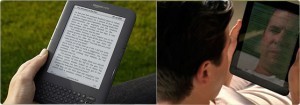 Knowing that I'm an avid reader, many people have asked what I think of the growing popularity of ebooks and ereading devices. Ask me about a year ago, I would have told you that I didn't see myself changing.
Knowing that I'm an avid reader, many people have asked what I think of the growing popularity of ebooks and ereading devices. Ask me about a year ago, I would have told you that I didn't see myself changing.
Well, I changed.
My interest in the Kindle was generated by my foray into self-publishing. I had to format a book for this thing, so it seemed logical that I learn something about it so that I could make my text look as good as possible on it. I discovered that my negative opinion was based on false assumptions about the device.
Here are some of my former thoughts on ebooks and why I changed:
I like the feel and smell of paper. This is still true, but I had to temper my love of paper when I began developing allergy issues. Books gather dust. I don't like reading and sneezing.
I don't like reading on computer screens.Turns out that many dedicated ereaders have e-ink screens, which are designed to simulate paper and do not have back-lit screens. It's not at all like reading on a computer, and even though I didn't believe it at first, it is very much like reading a paper book.
I'm not going to pay $200 for a little ebook reader.The prices have dropped, so that helped, but my opinion really began to change when I saw that publishers generally price their ebooks lower than their print editions, which is fair. I am still chagrined at many publishers who are pricing their books at the same, similar, or higher cost of their paperback or hardcover print editions, so I just don't buy them. I didn't buy them before either, by the way. I checked them out at the library. And speaking of libraries…
If I can check it out for free, why would I pay for a digital copy and an ereader? I still love libraries, but if you'll note my comment on allergies above, sometimes the books from them take on an odor that just does not work for me. I have had to return books solely because of my reaction to them. (Gosh, I sound like a hypochondriac. No more allergy talk.) Plus, I don't enjoy reading hardbacks. They are awkward to hold, especially in bed. And libraries generally stock them.
Now that I have my Kindle, I love it. It is small, lightweight, and portable, and it contains a whole library of books. It is more comfortable to hold and I don't have to work to keep it open. (I know it sounds like I'm about to start complaining about my bursitis or something.) And it doesn't weigh nearly as much as hardcovers. I can set it up in bed and read hands free. I even put it in a Ziploc bag and read in the tub. I don't have to worry about breaking the spine and having pages fall out or loaning books to someone and having them returned all creased and ruined. Books are generally more affordable, and public domain works are free; I got all of Austen's works at no cost and am working on my free Shakespeare collection. It has search features and a dictionary built in.
But most importantly, I love reading on it. It offers a paper-like reading experience. I'm not lying.
This thing is pretty darn cool.
January 4, 2011
Be Kind to Copy Editors Day
 Copy editors take a lot of grief. I know. I've been doing this job for ten years. And now that I've written and published a book, I can honestly say that I have experienced the editorial process from all angles.
Copy editors take a lot of grief. I know. I've been doing this job for ten years. And now that I've written and published a book, I can honestly say that I have experienced the editorial process from all angles.
I know how it feels to have your work marked up and to see changes made to your text. I know it can be frustrating, especially if you disagree with the changes or do not like the suggestions.
But here's the thing, copy editors are not out to ruin your text. They aren't trying to make you angry. They aren't just moving commas around for the fun of it.
A copy editor's job is to make sure your manuscript adheres to house style. They make corrections based on a style guide provided by the publisher. Writers are usually given this style guide as well, so really, there should be no surprises.
But invariably, when I receive an author's corrections to the copy-edited version of a text, it is rife with indignation and sometimes outright spite and anger.
And there's no need for it. I understand that you are attached to your text, but you must also understand that I am just doing my job, which is to conform your text to standards set by the publisher. I did not make up those standards. I do make mistakes, and I appreciate being notified of them. I'm not perfect, and I strive to make your text (and mine) as clean as I can, which is the same goal you, the writer, should have.
So please, before you insert that snide remark about how the copy editor royally screwed up the book, remember that you are writing to a human who put many hours into doing their job, which is to help your text meet someone else's standards.
January 3, 2011
4 months, 2 days, and 1,000 Sales!!!!
And all I can really say is THANK YOU!
I appreciate every single person who purchased and read Charlotte Collins.
No matter what the future holds–whether the book remains as it is or is picked up by a publisher–I am thankful and honored that you invited Charlotte into your bookshelf or Kindle.
So in the meantime, onward to 5,000! Why not?
January 1, 2011
MOVIN' ON UP
In case you forget or if you just enjoy using Blogger, I am still (sort of) updating here. Above this post, you will see links to all my new blog posts. Click there to read the new stuff.
I appreciate every reader, so please come on over.
Eye Candy Blogfest
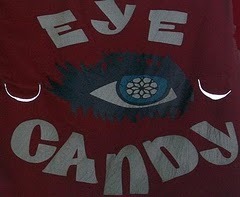 To bring in 2011, I am participating in the Eye Candy Blogfest in which bloggers post a favorite picture. So I am posting a shot of one my most memorable moments in 2010. For years, I've struggled with fear issues, especially related to horseback riding. Then, I met Laura Daley, who is a fear expert, and she helped me overcome my issues. She lives all the way across the country, but she came to help me this summer, and this is a capture from a video she took of my first fear-free canter.
To bring in 2011, I am participating in the Eye Candy Blogfest in which bloggers post a favorite picture. So I am posting a shot of one my most memorable moments in 2010. For years, I've struggled with fear issues, especially related to horseback riding. Then, I met Laura Daley, who is a fear expert, and she helped me overcome my issues. She lives all the way across the country, but she came to help me this summer, and this is a capture from a video she took of my first fear-free canter.
I am posting it in the hopes that it will remind me to gallop joyously into the near year and to face all the new challenges it brings with a fear-free attitude.
December 31, 2010
Goals for 2011
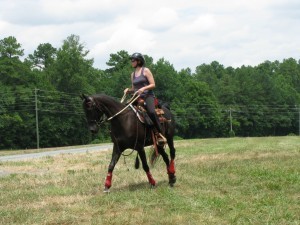
One of my favorite images from 2010. After being so afraid, it is a miracle to ride fear free.
The year 2010 has been one of many highs and lows. My family dealt with my ninety-one-year-old grandmother's traumatic surgery and recovery, and I continued to battle horseback riding fears. I also injured my arm in a horse-related accident and am still trying to regain full use of it. Despite the negatives that came with this year, I achieved two lifelong goals: cantering my horse in a field fear free and publishing a novel. Laura Daley, my dear friend, horse trainer, and expert on fear-related issues, helped me to overcome my riding fears, and believe it or not, that helped me overcome my publishing fears. So, thank you, Laura. You changed my life.
Publishing a novel has been so much more amazing than I imagined. I just thought I'd have a nice paperback and that would be it. But Charlotte Collins has introduced me to so many wonderful new friends. Writing is kind of a social media all its own. And I must thank all my new friends for reading my book and for sending me encouraging words about it. You guys make me think I could do it again.
And 'tis also the time of year to contemplate New Year's Resolutions. I don't really like to make resolutions. I'm not the UN. I do, however, have some goals that I'd like to achieve.
Finish selling the 1,000 copies of Charlotte Collins, which was the original goal for the book.
Finish and prepare my second Jane Austen sequel for publication on July 15, 2011.
Polish my mystery novel.
Finish the first draft of Riding Fear Free with Laura Daley and explore publication options.
Continue my Fear Free journey with my horse Darcy by keeping up my trail riding and having fun.
Perhaps head down the path to being able to earn a decent living on (mostly) writing. (Hey, you never know. It could happen. And now is the time to dream big, right?)
So what are your plans for 2011?
December 30, 2010
Writing Fear Free: Punctuation and Style
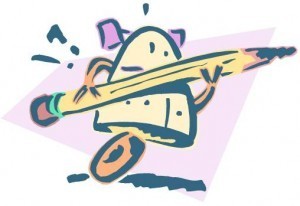
Grammarbot to the rescue!
When I first began copy editing, I did not truly understand style, and probably, I am still growing in my comprehension of it. But because grammar, punctuation, and style can be stumbling blocks to writing fear free, I wanted to share what I've learned so far.
A writer's first goal should be communication. Not only are we trying to write something beautiful and worthy, but we are trying to convey this beauty and worthiness to others. Writing is communication. This is where the grammar and punctuation rules we learned in school come in handy. They give us the foundation of communication with those around us. They make it easier to communicate our message with our readers.
Many writers try to use punctuation as style. And before I get rotten fruit thrown at me, yes, there is some leeway in grammar that does allow writers to make certain choices that help to define their writing. But if those choices sacrifice clarity and communication, then have you really achieved your goal? If your punctuation makes readers put the book down in disgust, has your message been heard? Have you communicated anything at all other than frustration and confusion?
The most common offender I've seen as an editor is the ellipse. People try to use it for everything under the sun. The ellipse is meant to show that some text has been omitted, and it is most commonly found in direct quotations to indicate that very thing. It can also be used in dialogue to show that someone has expressed an incomplete thought. And occasionally, it can be used to indicate a pause. This last part is where people go too far. They use the ellipse in place of periods, commas, and semi-colons, which were all designed to indicate pauses as well.
Overuse of the ellipse is annoying, even to people who aren't grammar nerds like me.
Have you ever heard a review that praised a writer's artistic use of the ellipse? I haven't. But I have read reviews in which someone said, "The grammar was horrible," "The book needed to be proofread," or "Someone needs to edit out all those ellipses."
So here is my theory: Truly artistic and correct use of punctuation and grammar allows the words to come alive. Readers can hear the text in their head. They can taste it on their lips. They can feel it in their hearts. If readers continually encounter incorrect grammar or unnecessary use of punctuation, it will actually prevent them from ever truly experiencing a writer's style, which lives in the way you put words together to form meaning. So don't let something as surface and insignificant as a mark of punctuation stop you from communicating with your readers.
December 28, 2010
CreateSpace and Online Paperback Distribution

Charlotte Collins's Printer
Consider this a retraction and clarification of the following point on my blog from yesterday about what traditional publishers may still be able to do better:
Online paperback distribution at good prices: While indies do have the option of expanded distribution to all online book retailers that traditional houses do, in my opinion, trad pubs still have the advantage here. And that advantage comes in price. They can produce books more cheaply, and therefore, they can offer larger discounts. (For example, if I were to open expanded distribution on Charlotte Collins, I would have to raise the price in order to account for the new retailer's cut. If I raised the price by $3, I would actually make half as much money per book at other retailers as I do now using only Amazon.com and my personal store with the price at $9.99.)
Upon further research I discovered that CreateSpace, the printer I use, pays royalties based on the list price set by the author. That means if the retailer decides to discount the book, the writer still gets paid based on the list price, not the discounted price. So if I set the price of Charlotte Collinsat $13, which I'd have to do in order to make up for the additional retailers' cuts, and then that retailer discounted the book back to $10, I would still earn the royalty on $13.
Now, it might sound a little petty to be quibbling over $3, but there are much tighter tolerances on paperbacks than ebooks. The sales price has to account for the printing costs, CreateSpace's cut, and the retailer's cut. CreateSpace is an Amazon company, so they have a better deal with them naturally. Selling the same book at BN and other retailers costs more. When I whittle it all down, I'd still be making less per book at the additional sales channels, but in return I gain distribution, which is important.
As I've said from the beginning, it is important to me that my book–and any I release in the future–are priced right. I have bought innumerable books in my lifetime, and I know how expensive it can get. So I'm trying to find the balance between distribution, price, and royalties, and I wanted to share that information with other writers out there too.

